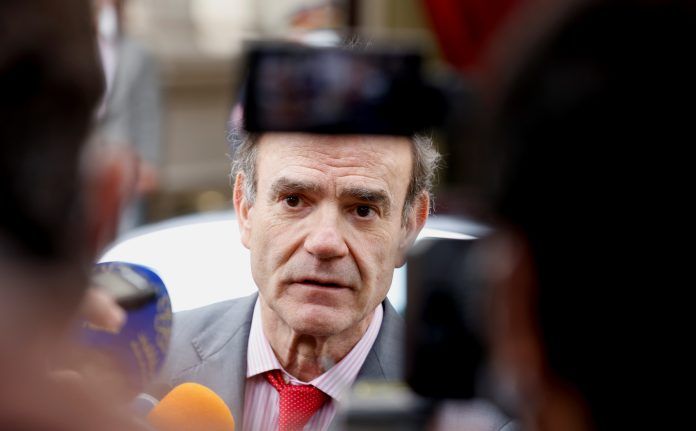
By Francois Murphy and John Irish
VIENNA, Jan 28 (Reuters) – Negotiators at talks to salvage the Iran nuclear deal will ask their political superiors to take decisions to resolve various thorny issues that remain as they return to their capitals for a break of a few days, officials said on Friday.
Western diplomats say the negotiations, which have been in their eighth round since Dec. 27, are making progress but moving too slowly to reach an agreement before restrictions on Iran‘s nuclear activities contained in the landmark 2015 deal have been irreversibly hollowed out. The hardest issues remain, they say.
The United States and its allies France, Germany and Britain, the so-called E3, have said since mid-December that weeks not months remain to reach an agreement at the talks in Vienna on bringing Washington and Tehran back into full compliance with the deal.
“Participants will go back to capitals for consultations and instructions… Political decisions are needed now,” the talks’ coordinator, Enrique Mora of the European Union, said on Twitter.
A separate EU statement said talks would resume next week.
“January has been the most intensive period of these talks to date,” negotiators from the so-called E3 of France, Britain and Germany said in a statement. “Everyone knows we are reaching the final stage, which requires political decisions.”
ANALYSIS: Will Iran Nuclear Deal Talks in Vienna Produce Results This Time?
The 2015 deal lifted sanctions against Tehran in exchange for restrictions on Iran‘s nuclear activities. Then-President Donald Trump pulled the United States out of the deal in 2018, re-imposing U.S. economic sanctions on Tehran. Iran responded by breaching many of the nuclear restrictions.
How much any political decisions will accelerate the talks remains to be seen. Russia’s top envoy, Mikhail Ulyanov, who is often the most optimistic delegate, tweeted: “My instinct tells me that agreement will be reached soon after mid-February.”
A French presidential official told reporters the main sticking points included the guarantees Iran is seeking to ensure there is no second U.S. withdrawal from the deal.
“The negotiation today remains difficult because the question of guarantees and the modalities to put Iran‘s nuclear programme back under control need to be clarified, but there are a few indications that the negotiation can conclude (positively),” the official said.
EXCLUSIVE – Iran Nuclear Agreement Unlikely Without Release of U.S. Prisoners -Malley
(Reporting by Francois Murphy in Vienna and John Irish in Paris Additional reporting by William James in London Editing by Toby Chopra and Frances Kerry)

